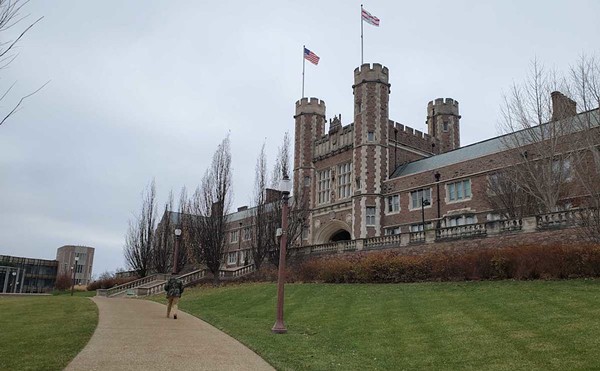An effort to save law-enforcement resources by reducing the punishment for low-level marijuana offenses in St. Louis has received renewed attention this month -- with a metro police sergeant actively lobbying for the cause, much to the displeasure of his higher-ups.
The free-speech lawsuit this fight sparked has raised questions about local law enforcement's stance on these marijuana-reform efforts. Police officials recently haven't said too much about the potential law change, though backers of the initiative say the department is generally supportive. And Daily RFT checked in this week with officials at the St. Louis circuit attorney's office -- who would in theory prosecute fewer minor offenses under this proposal -- to get their thoughts.
The circuit attorney is supportive, though officials tell us that if passed, the measure would not directly impact the office's resources.
As we've reported, St. Louis Alderman Shane Cohn has proposed a bill to encourage law-enforcement officials in the city to prosecute minor possession offenses in city court as opposed to the circuit attorney's office. This change, Cohn argues, would save government resources and would also not unfairly burden those who have committed the most minor possession offenses. The bill has specific criteria for when theses cases should go to city court. (For example, if individuals have felony convictions or previous marijuana convictions, those should still be sent to the circuit attorney, the latest draft of the legislation specifies.) In municipal court, these crimes would be treated as violations with a fine.
And ultimately police officers would still have discretion to decide where to send cases.
Where, then, could this save resources?
Not at the circuit attorney's office, which last year, for example, handled about 200 marijuana misdemeanor cases.

In response to Daily RFT's inquires, Rachel Smith, chief prosecutor for the office's community affairs bureau, writes:
Alderman Cohn's ordinance allows matters involving small amounts of marijuana and first time offenders to be handled by the City Court. This system, while not impacting Circuit Attorney resources, has potential to save police resources while generating fine revenue for City tax payers. The Circuit Attorney's Office is always open to ideas that can allow the criminal justice system to use resources efficiently without risking public safety.
Continue for more details on the marijuana reform proposal.






